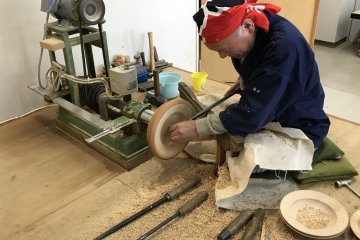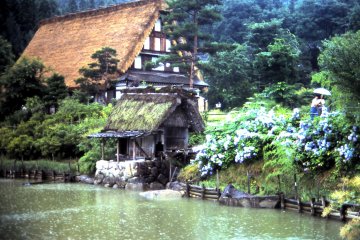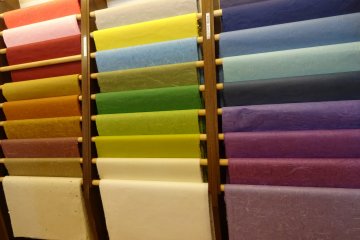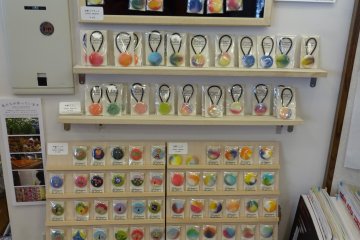At the Gokayama Washi no Sato, or “Gokayama Japanese Paper Village”, you can not only admire and buy washi and washi-made items, but you can make washi yourself!
Washi is Japanese hand-made paper. While there are many places in Japan where washi is made, the Etchu Washi, Japanese paper made in Gokayama, has actually been designated as one of Japan’s Traditional Crafts. Etchu is the old name of present-day Toyama where paper-making has a history of over 1,000 years.
The history of Etchu washi goes back to the Heian Period of Japanese history (8th to 12th century). During the Edo Period (the Japanese feudal period running from the 16th to the mid 19th century) washi was used by the locals to pay their annual tribute to the lords of the Kaga Clan who ruled over this area.
At the Washi Museum you can learn about the history of paper-making and admire beautiful washi papers on display. Of course you can also buy sheets of washi, as well as many washi-made items. It is hard to choose from the many interesting washi products. The colours and patterns of the washi paper invite to purchase a sheet or two, provided you can make up your mind which ones to take.
Until the 1950s washi was an essential part of everyday life of Japanese households. For example, sliding screens were covered with washi paper and lamp shades were made of washi.
In the old days every family in the area was involved in washi-making but in recent years the number of washi masters, people who know how to make washi, became less and less. This is why the local community set up this Center in order to preserve the craft and heritage and to pass on the skills to future generations. The community even grows the mulberry trees from which they harvest the fibre used for washi making here.
The Gokayama Washi no Sato is located at the Michi no eki Taira, a short drive away from Gokayama UNESCO Site (8km from Ainokura, 16km from Suganuma).
If you visit the Gokayama area, then stopping by here will deepen your experience of Toyama’s beautiful countryside and its rich cultural heritage.











